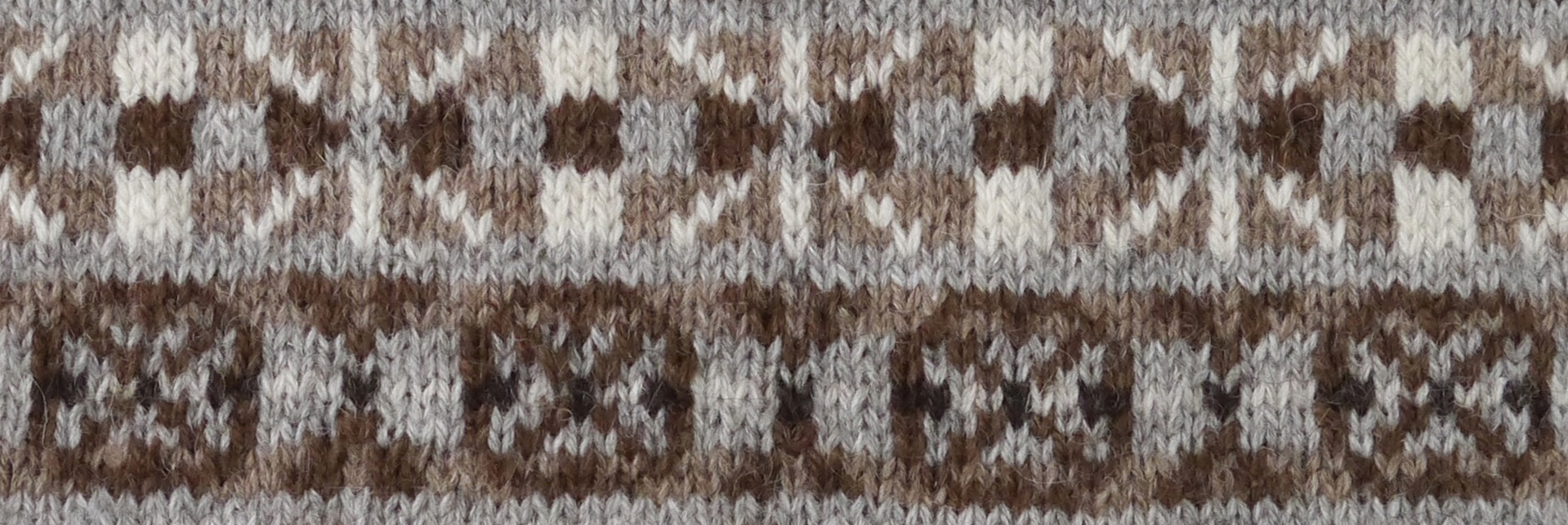
Home
Foula Sheep
Shetland Wool
Naturally Coloured Yarn
Fair Isle Knitting
Wool Shop
Fair Isle Knitting using Foula Wool
 Knitting by Tom of Holland
Knitting by Tom of HollandThe exact origin the Fair Isle knitting style is unclear. There are stories of marooned Spanish sailors shipwrecked after fleeing the ill-fated invasion of England by the Spanish Armada teaching locals the secrets in exchange for food and shelter. There are also the similarities to Nordic knitting styles, which lead to the speculation that the knitting is linked to times when Shetland was dominated by Vikings and their culture. Whatever the truth behind these rumours one thing is certain: Shetland made the knitting style its own and it has now developed into something that is known the world over.
From a technical point of view Fair Isle knitting is when two or more different colours are used in any one row of knitting, and there are specific techniques that allow the knitter to achieve this. But it was the variety of intricate patterns that developed once Shetlanders had mastered the basics of technique that were to create a world famous product. There is an obvious correlation between Shetland Sheep and Fair Isle knitting, being that both the sheep and the knitting style share a multicoloured appearance. It is therefore reasonable to imagine that chief amongst the factors that led to the success of Fair Isle knitting was an abundance of naturally coloured wool in the isles. These patterns and techniques originally developed with naturally colour yarn have subsequently translated into the modern world of dyed wool to further diversify the style. But if you are looking for the chance to try Fair Isle knitting using the same naturally coloured palette on which it was first developed, then Foula wool would be an obvious place to start.
copyright@foulawool2014


